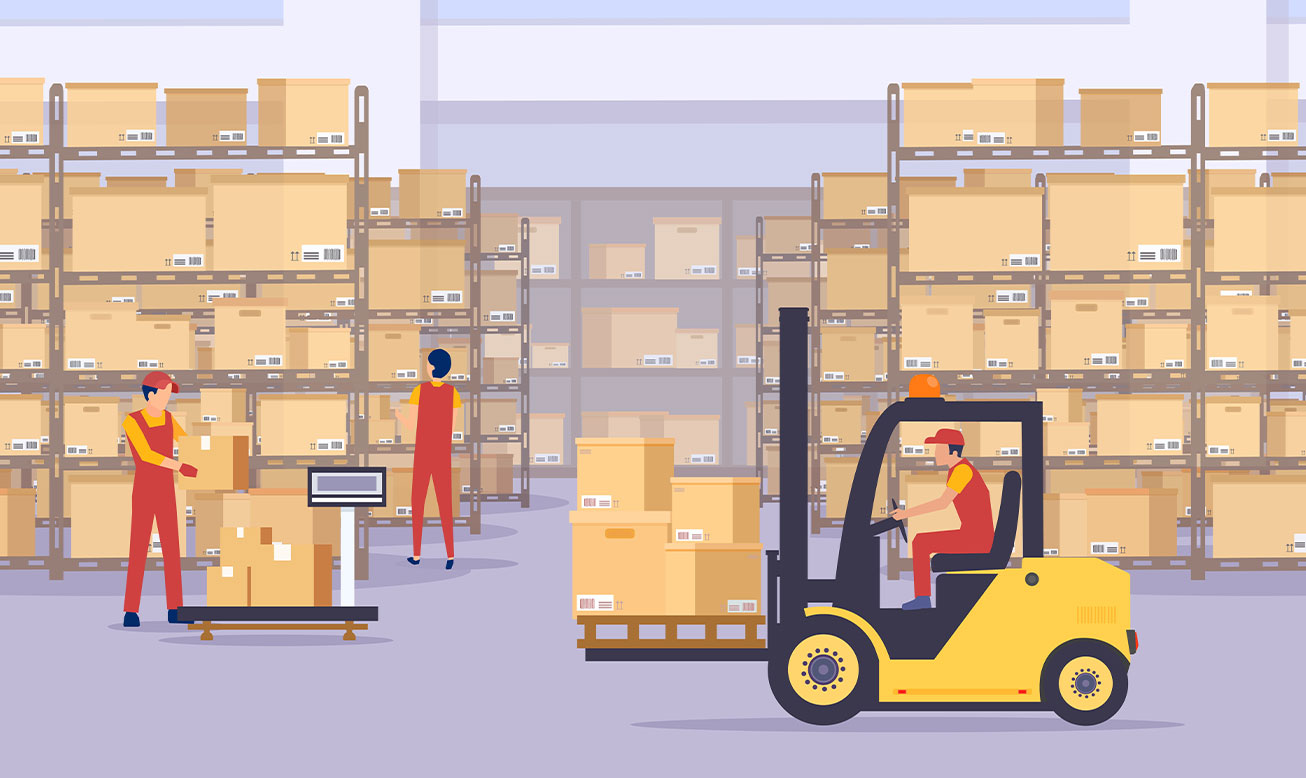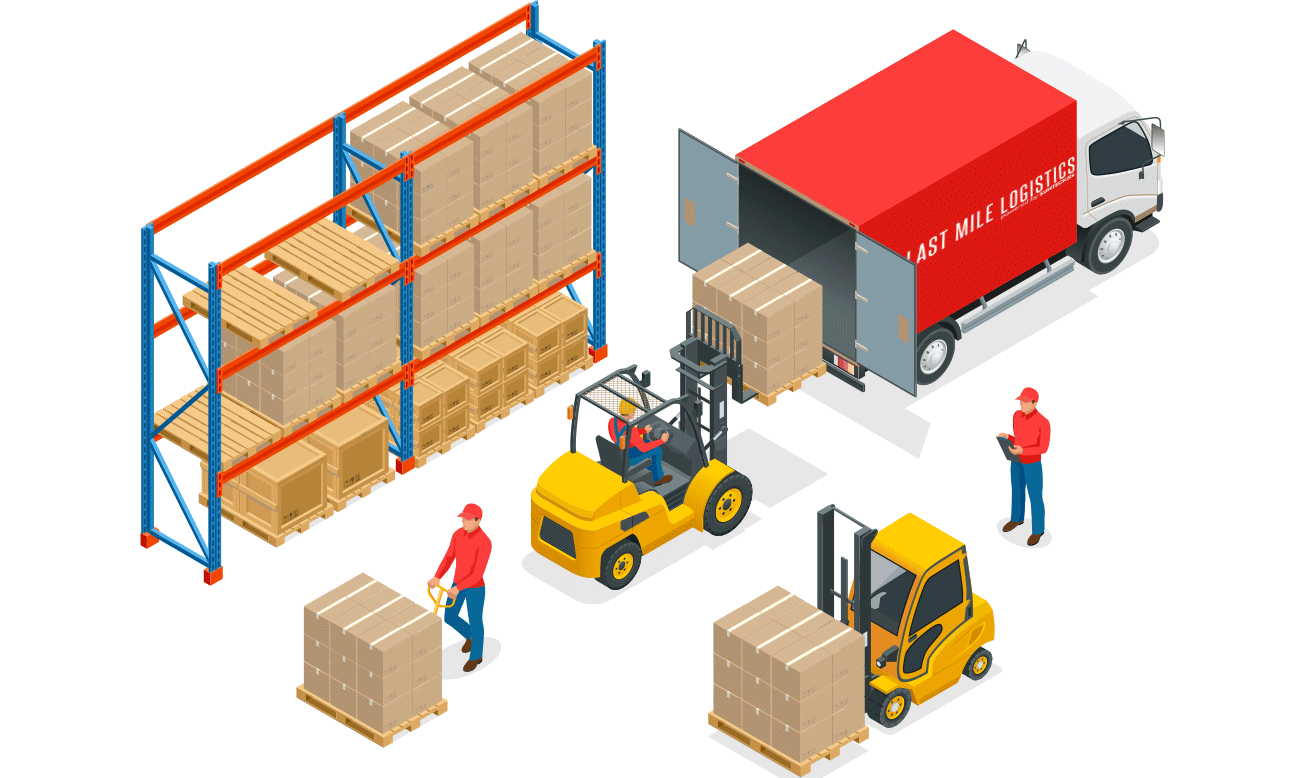August 24, 2025
How do Urban Warehouses Benefit Last Mile Delivery Strategies?
Over the past decade, urban warehousing has transformed from a niche logistics solution into a critical pillar for efficient supply chains. By placing urban warehouses closer to high-demand areas, companies can significantly cut delivery times, improve order accuracy, and reduce costs. For businesses in metropolitan regions, this is no longer an optional convenience but a competitive necessity.
Unlike traditional warehousing models, which often depend on extensive facilities far outside the city, urban warehousing brings storage and fulfillment closer to customers, suppliers, and distribution hubs.
What Is Urban Logistics and Why Does It Matter?
Urban logistics refers to the movement, storage, and delivery of goods within densely populated areas. It is the lifeblood of commercial activity in cities, ensuring that products reach businesses, retail locations, and end users quickly and reliably.
For the B2B sector, urban logistics is not just about speed, but also about precision and accuracy. A business receiving critical components late can face production delays, increased costs, and lost revenue. By incorporating urban warehouses into their supply chain, companies can mitigate these risks and keep operations running smoothly.
The logic is straightforward: the closer your fulfillment center is to your client base, the more reliable your delivery performance becomes. For many businesses, working with a dedicated fulfillment center warehouse associate in an urban location means orders are processed, packed, and shipped in hours, not days.
How Urban Warehousing Improves Last Mile Delivery Solutions
The last mile is often the most challenging and expensive stage in logistics. It involves moving goods from a transportation hub to the final destination, which can be a retail store, manufacturing facility, or corporate office. Urban areas add layers of complexity, traffic congestion, limited loading zones, and time-sensitive delivery windows.
As a non-asset-based carrier, we work with a network of approved providers and on-demand warehouse options to adapt quickly to these challenges. Our clients benefit from:
Proximity to major freight hubs – Reducing inbound transit times and allowing for faster cross-docking or order fulfillment.
Urban consolidation centers – Combining shipments from multiple suppliers into one delivery to reduce congestion and costs.
Efficient entry and exit strategies – Optimizing routes to minimize time spent in high-traffic zones.
Coordinated reverse logistics – Managing returns and exchanges more efficiently thanks to the short distance between the customer and the warehouse.
These strategies are crucial for businesses with complex supply chains that need dependable last-mile delivery solutions.

The B2B Advantage of Last Mile Warehousing
For consumer deliveries, the main goal is speed. In the B2B world, the stakes are even higher; speed must come with reliability, cost-control, and scalability.
A strategically placed last-mile warehouse can:
Reduce transit costs by cutting mileage and fuel usage.
Shorten lead times for urgent orders or just-in-time inventory replenishment.
Enable same-day and next-day delivery for clients in the same metropolitan area.
Support large or complex shipments that require special handling or timed delivery windows.
In our experience, B2B clients often discover last-mile delivery opportunities in areas they did not initially consider, thereby reducing downtime and ensuring customer satisfaction.
Balancing Speed with Sustainability
A frequent concern in logistics is striking a balance between rapid delivery and environmental responsibility. Urban warehousing supports sustainability by reducing the distance traveled for deliveries, which in turn lowers fuel consumption and emissions.
Additionally, with warehouse-on-demand models, businesses can scale space usage up or down depending on seasonal peaks, thereby avoiding the overhead of underutilized facilities. This flexibility is cost-efficient, but more noteworthy, it is environmentally smarter.
Our approach is to pair last-mile delivery solutions with route optimization and consolidated shipping methods, ensuring fewer vehicles on the road without compromising delivery speed.
Cost Considerations and Operational Impact
Traditional long-haul shipping models often require goods to be moved from a central facility outside the city into the urban area. This creates multiple handoffs, increased transportation costs, and a higher risk of delays.
By contrast, storing goods in a fulfillment center nearby, or more accurately, near your client base, eliminates unnecessary miles. Businesses also gain faster turnaround on returns and exchanges, which is critical in industries where downtime means lost revenue.
In B2B logistics, these cost savings extend beyond freight charges. Urban warehouses can help reduce damage claims, late delivery penalties, and even emergency courier fees for time-sensitive shipments.

Flexibility Without the Commitment
One of the most valuable trends in urban logistics is the warehouse-on-demand model. This model enables companies to secure storage space and fulfillment services only when needed, rather than committing to long-term leases or owning facilities outright.
For a non-asset-based carrier, this flexibility enables us to quickly align storage and distribution points with our clients’ current needs. Seasonal spikes, new market expansions, or short-term projects can all be supported without the overhead of permanent infrastructure.
This flexibility also allows businesses to test new markets. By setting up temporary operations in a city warehouse, companies can evaluate demand before making a long-term investment.
Designing an Effective Urban Warehousing Strategy
Building a successful urban logistics network is not about simply finding the right fulfillment center. It requires careful planning, data analysis, and the right partnerships. Our process for helping B2B clients includes:
- 1
Demand mapping – Identifying where orders are coming from and which areas have the highest concentration of customers.
- 2
Carrier network evaluation – Selecting trusted partners with proven performance in urban areas.
- 3
Inventory placement – Storing the right products in the right locations to minimize fulfillment time.
- 4
Technology integration – Using real-time tracking and order management systems to improve visibility.
- 5
Sustainability planning – Designing routes and consolidation plans that reduce environmental impact.
When implemented correctly, this approach ensures that your urban warehouse is not just a storage facility; it becomes a strategic asset.
Why Partner with a Non-Asset-Based Carrier for Urban Logistics
Unlike asset-based carriers that rely solely on their own equipment and facilities, non-asset-based carriers offer flexibility by utilizing an extensive network of warehouses, drivers, and carriers. This allows us to select the most efficient and cost-effective options for each delivery.
For B2B clients, this means:
Tailored solutions – Every supply chain is unique, and we tailor our strategies to match your specific requirements.
Scalable capacity – Whether you need one pallet delivered or an entire truckload, we have options.
Reduced risk – With access to multiple providers, we can quickly adjust if one route or facility faces disruptions.
Our role is to act as an extension of your logistics team, bringing together the right mix of urban warehousing, last-mile delivery solutions, and operational expertise to support your growth.
Urban warehousing is no longer just a commodity but an essential strategy for B2B companies that want to stay competitive. By bringing products closer to their final destination, businesses can reduce delivery times, lower costs, and enhance service levels.
Working with Last Mile Logistics ensures you gain the benefits of warehouse on demand, flexible capacity, and tailored last-mile delivery opportunities without the burden of owning and operating urban facilities yourself.
If you are ready to explore how an urban warehouse strategy could benefit your supply chain, our team has the expertise, network, and dedication to help you deliver smarter.

